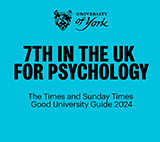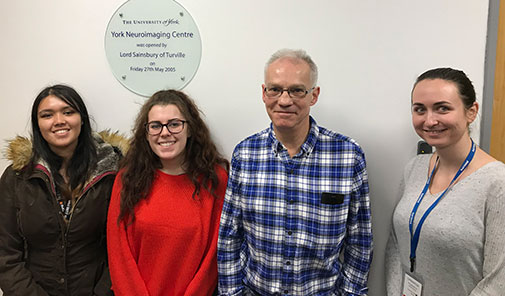
Study gives new insights into facial recognition
Posted on 29 July 2020

The study, by former Psychology Masters students Caitlin Bearpark, Aimee McPhillips and Julia Corkhill, focused on a neurological disorder called acquired prosopagnosia which affects the ability of stroke patients to recognise familiar faces.
They worked with Herschel, a 62-year-old prosopagnosic who is unable to recognise any faces including his wife and close family. This is because the part of the brain in humans that typically recognises facial identities - the right ventral occipitotemporal cortex - was destroyed when he suffered a stroke.
Neuroimaging
However neuroimaging scans showed that the part of the brain that processes facial expressions - the right superior temporal sulcus - was still functioning in Herschel at a level that was equivalent to other men his age.
This study shows that the two different brain areas have different visual inputs. In Herschel’s case, the cortical or visual input to the part of his brain that recognised faces was damaged, while the input to the area that recognised facial expressions - such as smiling - remained intact.
The students carried out the research with Dr Magdalena Sliwinska and Dr David Pitcher from the Department of Psychology.
Opportunity
Dr Pitcher said: “This was a great opportunity for our students to get involved in a study that gives us new insights into the impact a stroke can have on different parts of our brain. It adds to our knowledge and could pave the way for future therapeutic advances.”
Caitlin, who recently graduated from York with an MSci (Hons) in Neuroscience and Neuroimaging, is now working as an Assistant Neuropsychologist in the NHS.
The paper Dissociable pathways for moving and static face perception begin in early visual cortex: Evidence from an acquired prosopagnosic is published in Cortex
